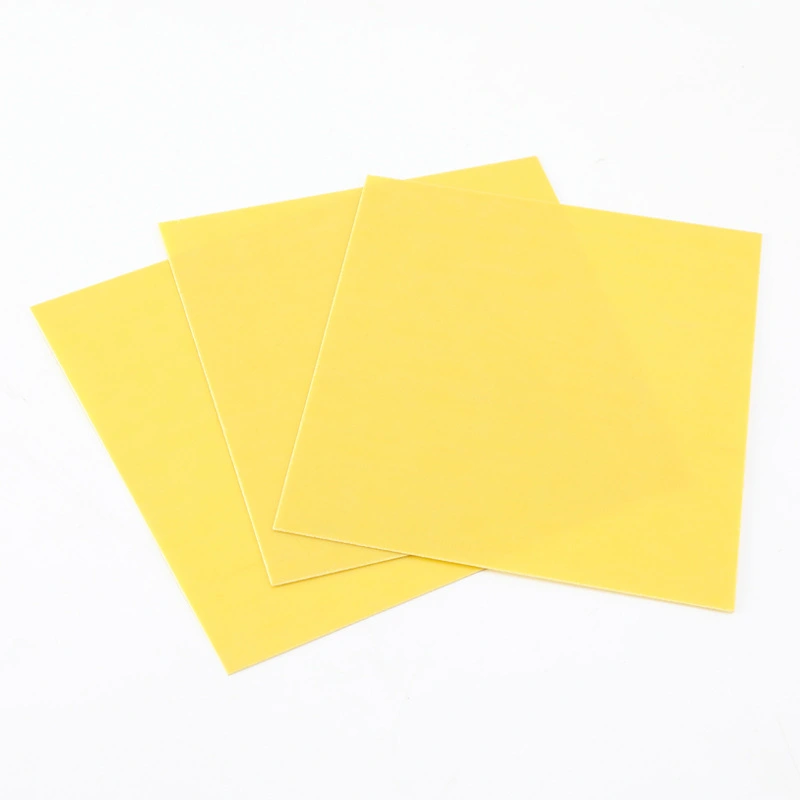What Makes 3240 Suitable for Transformer Insulation?
Superior Dielectric Properties
The 3240 epoxy board is highly regarded for its outstanding dielectric strength, which enables it to withstand very high voltage gradients without electrical breakdown. This characteristic is vital for transformer insulation, where large differences in electrical potential can occur. Additionally, the material’s low dielectric loss factor minimizes energy dissipation during operation, thereby enhancing the overall efficiency of transformers. These superior electrical properties ensure reliable insulation performance, contributing to the safe and effective functioning of transformer systems under demanding electrical conditions.
Thermal Stability and Heat Resistance
Transformers produce substantial heat during regular operation, making thermal stability a crucial consideration when selecting insulation materials. The 3240 epoxy board offers excellent heat resistance, maintaining its electrical insulating properties as well as mechanical strength even at elevated temperatures. This thermal robustness prevents degradation of the insulation material over time, ensuring consistent transformer performance. The board’s ability to withstand harsh thermal environments helps extend the lifespan of transformers by reducing the risk of insulation failure caused by prolonged heat exposure.
Moisture and Chemical Resistance
In transformer applications, exposure to moisture and chemicals can severely affect insulation integrity and performance. The 3240 epoxy board exhibits exceptional resistance to moisture absorption and chemical attack, preserving its insulating capabilities even in harsh environments. This durability is essential for both indoor and outdoor transformers, which may be exposed to humidity, oils, and other contaminants. By maintaining its structural and electrical properties under such conditions, the 3240 epoxy board ensures long-lasting, reliable insulation and protection for transformer components.
Electrical, Thermal, and Mechanical Stability Under Load
Electrical Load Handling Capacity
Under electrical load, 3240 epoxy board maintains its insulation properties, preventing current leakage and minimizing the risk of electrical failures. Its high tracking resistance helps prevent the formation of conductive paths on the surface, even in the presence of contaminants or moisture. This stability under electrical stress is crucial for ensuring reliable transformer operation across various load conditions.
Thermal Management and Heat Dissipation
Effective thermal management is essential for transformer longevity and efficiency. 3240 epoxy board contributes to thermal stability by providing consistent insulation performance across a wide temperature range. Its low thermal expansion coefficient helps maintain dimensional stability, preventing gaps or misalignments that could compromise insulation integrity. Additionally, the material's thermal conductivity allows for efficient heat dissipation, aiding in overall transformer cooling.
Mechanical Strength and Durability
Transformers are subject to various mechanical stresses, including vibrations, expansions, and contractions due to thermal cycling. 3240 epoxy board offers high mechanical strength and durability, resisting cracking, delamination, and other forms of physical degradation. This mechanical stability ensures that the insulation remains intact and effective throughout the transformer's operational life, even under demanding conditions.
Case Examples in Power Distribution and Industrial Equipment
High-Voltage Power Transformers
In high-voltage power transformers, 3240 epoxy board is utilized for critical insulation components such as barrier boards, spacers, and end insulation. These transformers, often operating at voltages exceeding 100 kV, require exceptional insulation to prevent electrical breakdown and ensure safe operation. The material's high dielectric strength and thermal stability make it ideal for withstanding the extreme electrical and thermal stresses present in these applications.
Distribution Transformers
Distribution transformers, which step down voltage for local power distribution, benefit from the use of 3240 epoxy board in various insulation applications. The material is used for coil formers, layer insulation, and end fillers, providing reliable electrical isolation between windings and other conductive components. Its resistance to moisture and environmental factors contributes to the longevity and reliability of these transformers, which are often exposed to outdoor conditions.
Industrial and Special-Purpose Transformers
In industrial settings, transformers are subjected to harsh operating conditions, including exposure to chemicals, high temperatures, and mechanical stress. 3240 epoxy board finds application in special-purpose transformers used in manufacturing processes, welding equipment, and other industrial applications. Its combination of electrical insulation properties, chemical resistance, and mechanical strength makes it suitable for these demanding environments, ensuring consistent performance and safety.
Conclusion
3240 epoxy board has proven to be an invaluable material in transformer insulation, offering a unique combination of electrical, thermal, and mechanical properties that contribute to the reliability and efficiency of power distribution systems. Its applications span from large-scale power transformers to specialized industrial units, demonstrating versatility and performance across diverse operating conditions. As the demand for more efficient and reliable power distribution continues to grow, the role of 3240 epoxy board in transformer insulation remains crucial, supporting the development of advanced transformer designs and contributing to the overall stability of electrical infrastructure.
Contact Us
For more information about our 3240 epoxy board products and their applications in transformer insulation, please contact us at info@jhd-material.com. Our team of experts is ready to assist you in finding the optimal insulation solutions for your transformer projects.






